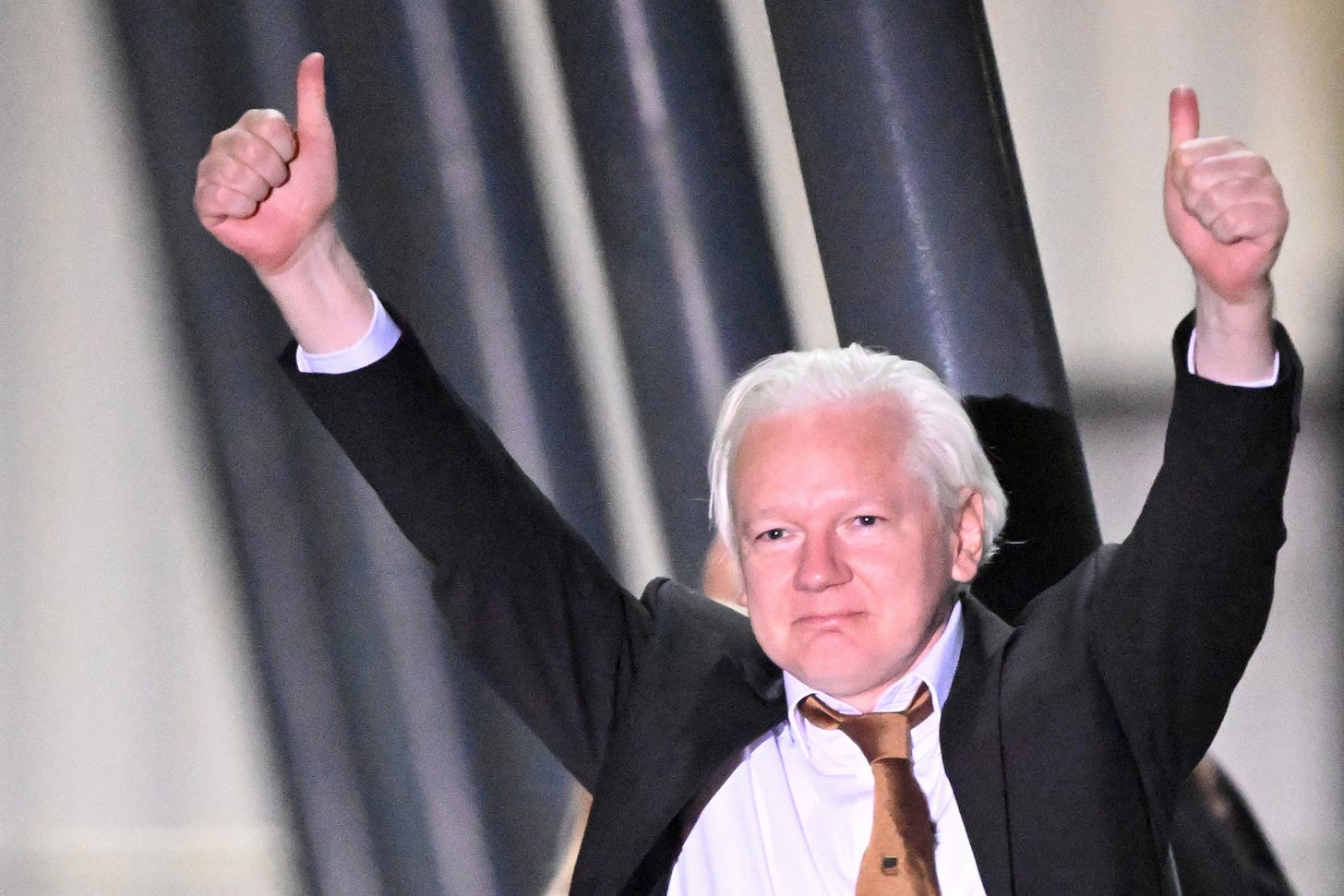Why Assange’s Plea Deal Is a Win for U.S. Intelligence

When the news broke of Julian Assange’s plea deal, WikiLeaks issued a statement declaring that “history” had been made — a triumphal tone echoed by many of his supporters. Out of jail, no fear of extradition, a free man.
There’s a very different view of the plea deal: the one held by the U.S. intelligence community. Current and former members appear broadly satisfied with the outcome, though for a rather different reason. They see an affirmation of Assange’s wrongdoing and a triumph for the idea that journalists, even foreign ones, can be held accountable for harming U.S. national security.
Judging from comments they have made which have received relatively little attention, and from what I’m hearing, Assange’s plea affirms the intelligence community dogma that the possession and publication of classified material is equivalent to espionage.
“I’m heartened that we have Julian Assange pleading guilty to a felony charge of illegally obtaining and disseminating classified materials, so that makes me feel good,” Larry Pfeiffer, former chief of staff of the CIA, said in an interview with Sky News on Tuesday. “Overall, I think it’s a win-win.”
Frank Figliuzzi, former assistant director of counterintelligence for the FBI, said in about as clear of terms as you can imagine what the Assange prosecution was all about: the government’s ability to define what is and isn’t journalism.
“Never a journalist,” Figliuzzi said on X (formerly Twitter). “Never.”
The win-win is complex. It is a win for Assange, who gets to go free, and a win for the intelligence community, which for the first time ever has established a precedent for the prosecution of journalism on national security grounds. His legal team has all sorts of carefully argued reasons why his plea does not constitute legal precedence, but misses the point. Espionage is the carrying out of spying against a country. That’s not what Assange did, nor as an Australian citizen, could it really be argued that there are any legal repercussions for his damaging American national security, if that indeed were ever proven. (It hasn’t been and there’s no evidence of any tangible harm.)
In all of this, the public loses, namely anyone who would like to read unauthorized national security related reporting based on information not gleaned from stories spoon fed to the media by the White House and the bureaucracy. I’m not saying aggressive national security reporting is going to vanish overnight, but a case like this provides one more reason for skittish lawyers of major media organizations to tell editors and reporters that stories aren’t worth the risk. And it’s not like we have an abundance of hard-hitting national security reporting as it is.
Which brings me to NBC’s Ken Delanian, a conventionally sourced national security reporter and, surely unrelatedly, one of the intelligence community’s favorite recipients of planted leaks (he used to clear drafts of his stories with the CIA’s public affairs office). Quoting a post on X by a former State Department official who said of the plea “good riddance” and “12 years of confinement is plenty of penalty,” Delanian said: “This seems to be a common view within the intel community.” (Former CIA and NSA Director Gen. Michael Hayden reposted a similar post by Delanian.)
Amusingly, the former State Department official, James L. Bruno, says he himself wrote or classified many of the documents published by WikiLeaks, documents that Assange is now accepting did damage to U.S. national security.
In the Assange case, the U.S. government never had to prove that the documents published by Wikileaks actually did any harm, but that’s the assumption that will linger. The assertion without proof is an important weapon in the American government’s arsenal, not just in convincing (or dissuading) news media outlets from handling “classified” material.
— Edited by William M. Arkin.


"And it’s not like we have an abundance of hard-hitting national security as it is."
I think you are missing the word "reporting" here.
Good piece. I think the intelligence community wants the precedent set here which they got.
One measure of whether or not they are successful will be if Assange resumes reporting through WikiLeaks or if he decides he's had enough and disappears from public view.
Julian must embrace his freedom and Wikileak pictures of Hunter’s massive hog.